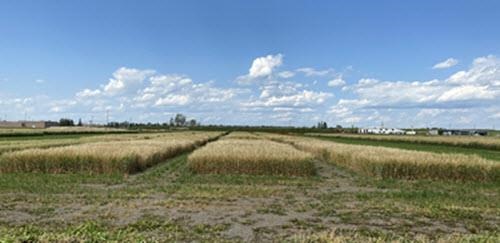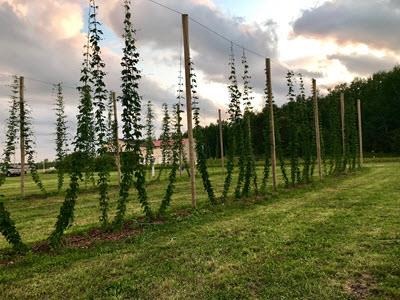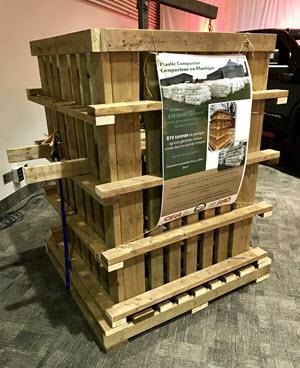Winter barley trials are just one of many efforts to gather pertinent information for farmers in the region
By Jackie Clark
Staff Writer
Farms.com
Much of the agricultural research conducted in Ontario takes place in the southern parts of the province.
Research done elsewhere in Ontario doesn’t often translate directly to northern parts of the province, so the Northern Ontario Farm Innovation Alliance (NOFIA) is a non-profit that works to generate data applicable to producers in northern regions.
“In northern Ontario there’s quite a significantly shorter growing season than other areas,” Emily Potter, executive director of NOFIA, tells Farms.com. The organization is investigating “cover crop options and get a sense if that’s something that is feasible up here.”
PepsiCo recently announced their support of regenerative agriculture.
“We grow a lot of oats and cereals for PepsiCo and Quaker in northern Ontario,” Potter explained. “One of the things that they wanted to see was incorporating more cover crops and regenerative ag practices. There’s not really a lot of research supporting the feasibility of cover crops in northern Ontario.”
Wetter and colder climate limits the planting window and ability for cover crops to establish before winter. NOFIA initiated trials at the Emo and New Liskeard research stations to test winter barley as a cover crop, as well as the possibility of harvesting yield from the crop.
Researchers are testing different planting dates to see “when’s the latest we can go,” Potter explained.

Overall, “we’re really focused on finding practical solutions for farmers across northern Ontario that will help them be successful, especially as we see more climate change affecting our area,” she said.
“We’ve done a lot of work on crop diversification,” she added. Some projects “might not seem like anything new to other areas, but for northern Ontario it is.”
For example, NOFIA just finished a study of malting barley, to see if the crop could hit the quality standards required for malting, a potential new market and revenue opportunity for barley growers in the region.
“We have a small hops yard at the Emo research station, looking at the economic feasibility behind that,” Potter added.

In addition to agronomic field trials, NOFIA does work on social, political, economic and infrastructural issues that impact farmers in northern Ontario.
The organization is working on a plastics disposal pilot project “looking at one potential solution to help farmers reduce their impact on the environment by providing an outlet for that plastic that’s being used in agriculture,” she explained.

This past year, NOFIA worked with partners to gather data on “the impacts that COVID-19 has had on agriculture in northern Ontario, which definitely has been different than perhaps other areas,” Potter said. That study helps to “address what the challenges have been, the numbers behind that, and where do opportunities now exist for future research, or using that data to support policy development or emergency planning.”
Balancing agronomic study with social and community issues is an important and complementary part of what NOFIA does.
“I think that those types of projects go hand in hand. You need the data to support different initiatives and help to develop policy and programming related to agriculture in the north,” Potter explained. “Farmers also need practical information to help them be successful.”
So, “we do a lot of diverse projects,” she added.
Emily Potter photos